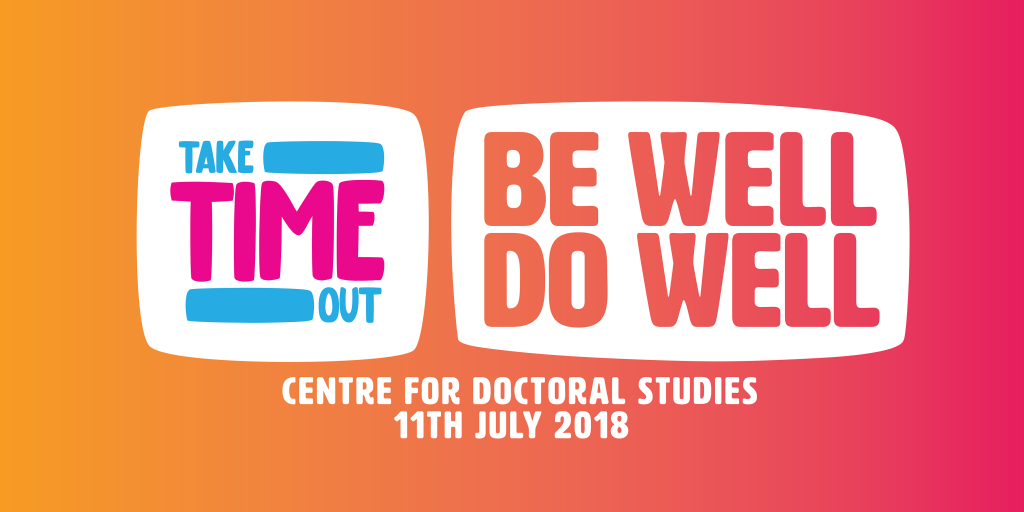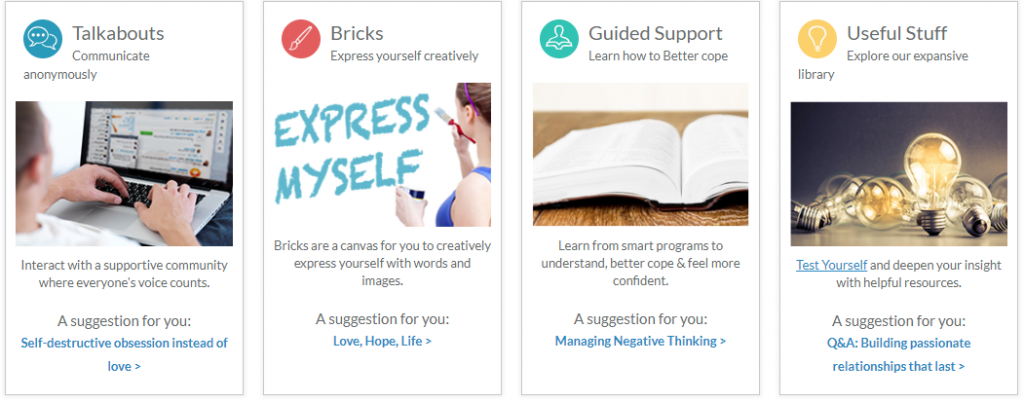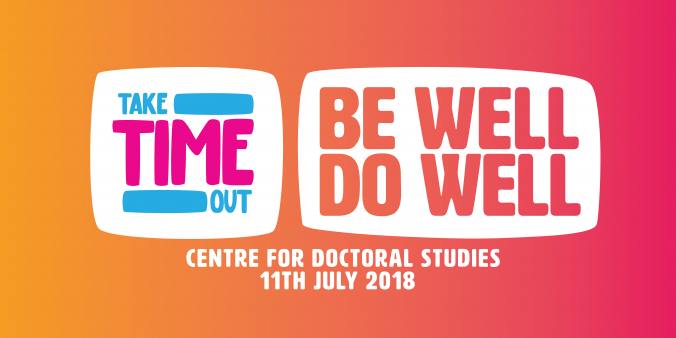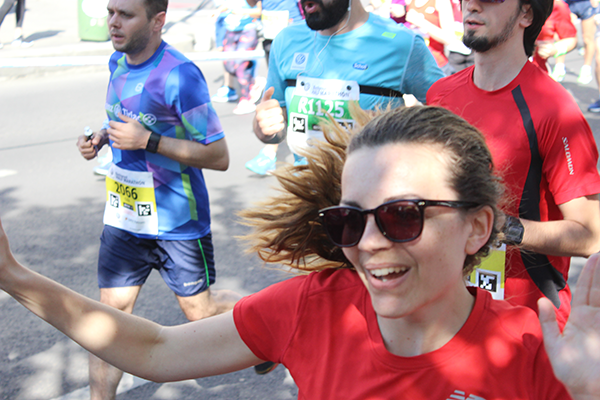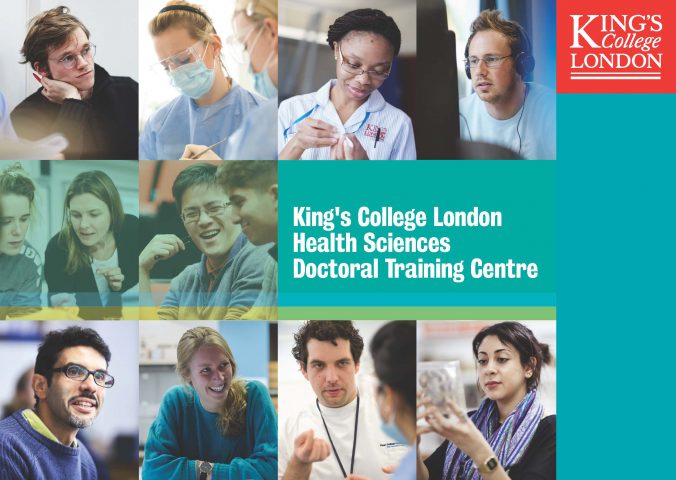Do you have an idea for an initiative that promotes PGR student wellbeing and mental health, diversity and inclusion, or community and cohort building? Would you like up to £700 to get your project off the ground?
The PGR Student Wellbeing Communities Fund supports initiatives which allow you and your peers to address the mental, physical and social wellbeing challenges which these demands can present.
Applications are now open so apply today, and read on to find out how three recipients of the PGR Student Wellbeing Events Fund (as it was previously known) created fun, interactive and inspiring activities last year.
The Wohlbeing Festival
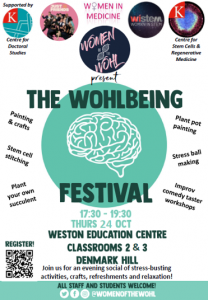
With support from the PGR Student Wellbeing Events Fund, Women of the Wohl hosted a collaborative event, The Wohlbeing Festival, to celebrate the end of KCLSU Wellbeing Week in October 2019.
This relaxed evening event provided nearly 40 researchers with an opportunity to unwind, socialise and take part in craft and stress-busting activities, including a performance by improv comedy group ‘Just Friends’.
It was also a great opportunity for both attendees and for Women of the Wohl to create, build and strengthen connections with other groups and departments at King’s, including KCL Women in Medicine, KCL Womxn in STEM, and the Centre for Stem Cells & Regenerative Medicine.
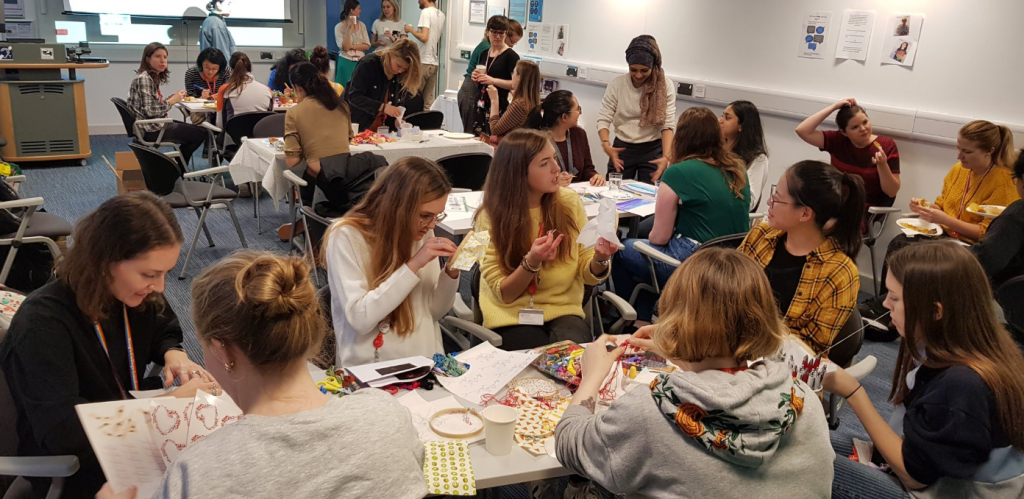 The organisers took the time to join in and chat to attendees, several of whom commented that they had come to the event alone but that the friendly, welcoming atmosphere meant that they were able to just pull up a chair and start chatting comfortably with people they’d never met while doing the activities.
The organisers took the time to join in and chat to attendees, several of whom commented that they had come to the event alone but that the friendly, welcoming atmosphere meant that they were able to just pull up a chair and start chatting comfortably with people they’d never met while doing the activities.
Overall the evening was a great success, and we received encouraging and positive feedback and comments from collaborators and attendees, who thanked the organising team personally for creating such a relaxing space.
Research in Action Group ‘Crafternoon’
PhD students in the Florence Nightingale Faculty of Nursing, Midwifery & Palliative Care organised a ‘Crafternoon’ in October 2019 which was sponsored by the PGR Student Wellbeing Events Fund.
The event created a space for students to do something creative and have a break from their desks, and provided an opportunity to discuss research issues in a neutral space; the faculty has a lot of part‐time students, so this was a chance for everyone to get together.
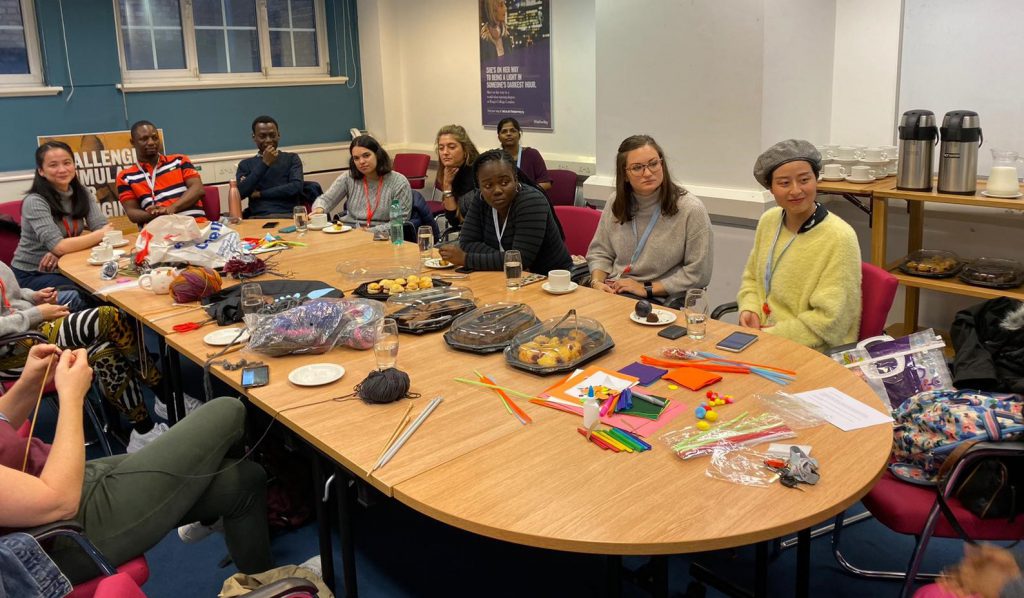 We supplied craft materials and participants were encouraged to bring their own creative projects: we had knitters, headpieces, and some creative paper crafts. Some people came just to enjoy the atmosphere. It was a fun chance to get together and for people to ask about issues with coding, writing, or simply navigating the faculty. We had a great time and hope to host more events like this in the future!
We supplied craft materials and participants were encouraged to bring their own creative projects: we had knitters, headpieces, and some creative paper crafts. Some people came just to enjoy the atmosphere. It was a fun chance to get together and for people to ask about issues with coding, writing, or simply navigating the faculty. We had a great time and hope to host more events like this in the future!
Wolfson CARD Yoga
Yoga is well known for its ability to ease stress and promote relaxation: it provides the benefits of physical exercise and improves mental health through moving meditation. In November 2019 our group was awarded funding from the PGR Student Wellbeing Events Fund to support yoga classes in the Wolfson Centre for Age-Related Diseases, with the aim of improving PGR student wellbeing.
We held seven classes for up to 10 participants every two weeks; the department then agreed to continue to support the classes through match funding, which allowed us to continue running them for a number of months. We received lots of positive feedback, including the following:
“Having access to yoga classes has been tremendously helpful while I have been completing my PhD. I am able to take the stress and anxieties I am feeling and release them in a constructive way, leaving me feeling refreshed and clear headed for the rest of the day. Having the classes in the building makes it more accessible and easier for me to attend if I have experiments running during the day.”
“Practicing yoga helped me with my shoulder and back issues linked to the many hours I spent at the microscope and sat at the desk. Moreover, after every class I feel much more relaxed and this indeed helps with the general stress level I usually have.”
“Being able to practise yoga in the same institute where I work is a great advantage and my physical and mental well-beings benefit from it.”
“Attending these yoga classes has really helped me deal with the stress of my PhD. By the end of the class I feel much more relaxed, and ready to come back to work refreshed the next day.”
“These yoga sessions strengthen the sense of community in the department by giving an opportunity to socialise with other colleagues and build a happier healthier work life balance.”
How to apply for the PGR Student Wellbeing Communities Fund
To apply for up to £700 to support your own wellbeing activities for PGR students, complete this application form by 12:00 (midday) on Thursday 29 October 2020. All current doctoral research students, from all faculties at King’s, are welcome to apply.


